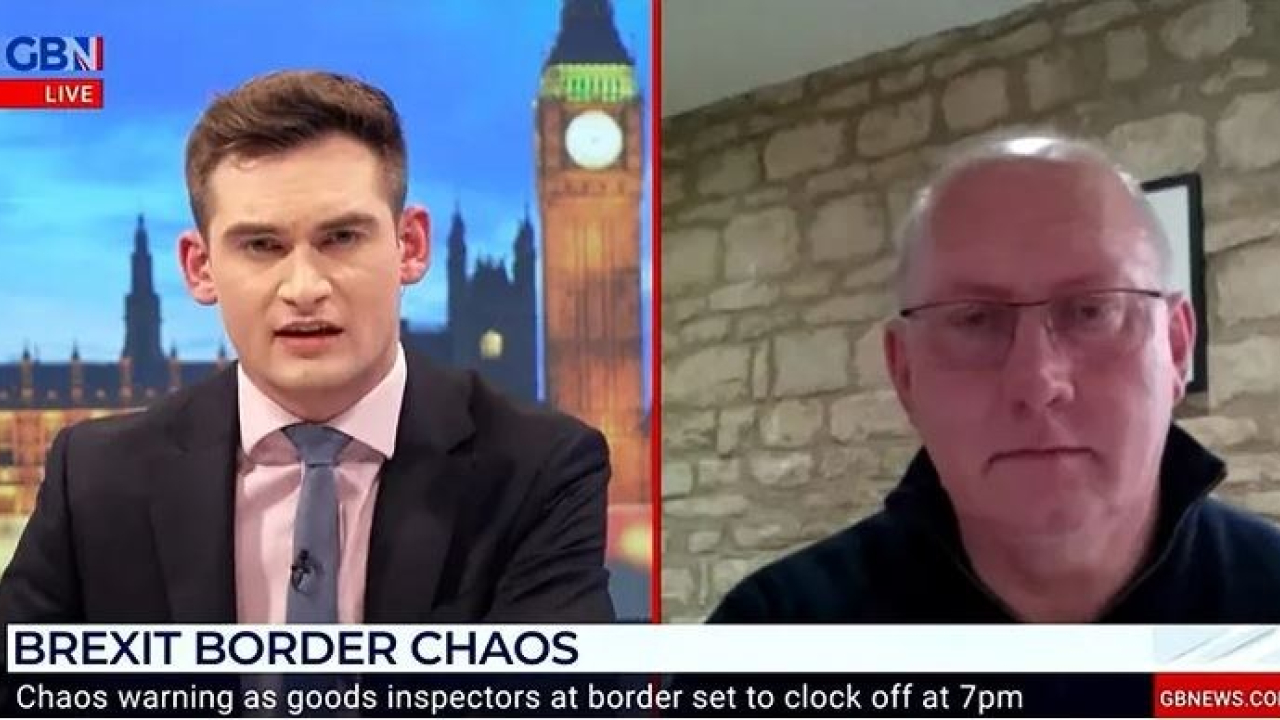
Nigel Jenney - Fresh Produce Chief Slams Ineffective and Costly Border Checks System
2 May 2024
In a forceful rebuke of the UK government's post-Brexit border strategy, Nigel Jenney, CEO of the Fresh Produce Consortium (FPC), has condemned the recently implemented border checks and inspections that he claims are causing significant disruption across the industry and ultimately impacting consumers.
Speaking on GB News, Jenney criticised the government for "crippling" the sector, highlighting that the sudden changes have led to substantial financial and operational challenges.
The FPC, representing a significant portion of the UK's fresh produce industry, has been vocally critical about the new 'Common User Charges' at the border. These charges can escalate to £14,500 for every 100 consignments, adding potentially millions of pounds in costs annually to the industry.
Nigel Jenney described the new situation as ‘highly complex, highly expensive and totally avoidable’ despite the industry offering its own, much cheaper, alternatives and said the IT system controlling the border may have already failed.
Jenney said: “The UK Government has procrastinated for years to decide what the correct border strategy is. It single-handedly implemented the new border strategy of the last few days without, frankly, my members' support or my industry's support.
“This is a highly complex, highly expensive, and totally avoidable solution. There are much more efficient and effective solutions that wouldn't have cost the industry frankly, a small fortune, and ultimately, UK consumers.
“I think what we have to remember is this is the sole responsibility of the UK government.
“A huge amount of the detail that the industry needs has only been announced in the last few weeks, which has caused total chaos and the fees that they are saying they will apply to the industry are simply enormous. So, from our point of view, we have for years offered alternative solutions. They frankly, have been ignored. They could be put in place retrospectively.
“I hope the government seriously considers what we've previously proposed, because as we speak, we're in a situation as I understand it, where the IT system managing the border has just failed. I can't confirm that but I understand that is the case, but I may be wrong there.
“None of us are surprised, let's put it that way. And at the same time, we're in a situation of - look, we have proactively, as an industry, offered alternatives. And let me just put that in context: as an industry we've accepted things are changing, and we have proactively put facilities in place, our members' facilities, to allow government officials to conduct inspections as and when they see fit.
“That is by far the most efficient, or least cost way of having a border at a level. There would be a cost to industry to have an official inspector and the goods would need to be presented for inspection.
“I think [the government] are fixated with their own model because they've invested huge amounts of time and, frankly, taxpayers money.
“The income that will generate that from fees, some may say it's another thinly veiled tax on business and consumers.”
Further exacerbating these issues is the timing of inspections, which cease at 7 pm, just as the bulk of perishable goods begin to arrive and continue arriving throughout the night. This misalignment between inspection hours and delivery peaks has led to additional delays and inefficiencies.
Jenney's comments on GBN were a scathing critique of the government's handling of trade policies post-Brexit.
Next article
Previous article
1 May 2024